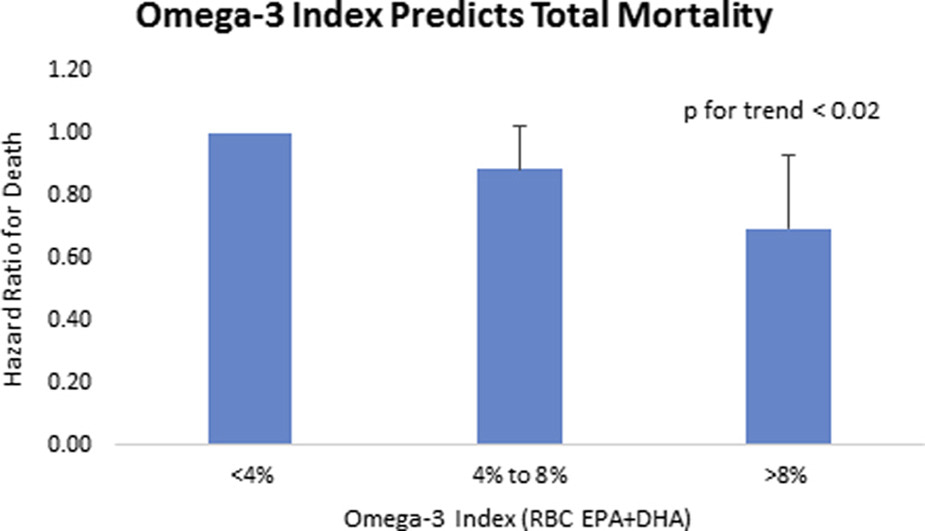Published on July 19, 2017
Could omega-3 consumption lead to a longer life?
Researchers think yes – and the Omega-3 Index Test could be the best predictor for a long, healthy life.
Study Group
Researchers used data from the National Institutes of Health (NIH) Women’s Health Initiative Memory Study which included 6,501 women aged 65-80 years old who were studied for 18 years (or until they died), starting in 1996.
A higher Omega-3 Index was associated with several factors including older age, more physical activity, less smoking, lower waist/body mass index, and being non-Hispanic white. The Omega-3 Index was also found to vary by region of the country, generally highest in the Northeast and lowest in the Midwest.
Results
An analysis of Omega-3 Index and total mortality was conducted. The Omega-3 Index was divided into three groups: < 4%, 4-8%, and > 8%, which corresponds to the low, at risk, and optimal levels that are recommended for Omega-3 Index levels.
The median Omega-3 Index was higher in the group of survivors (5.04%) than those who died during the trial (4.92%). This chart summarizes the deaths by Omega-3 Index groups.

Chart from paper, Harris et al.
Conclusion
Omega-3 Index is associated with longer life in post-menopausal women. This could provide support for Omega-3 Index of > 8% reduced risk of all-cause mortality.

References
Red blood cell polyunsaturated fatty acids and mortality in the Women’s Health Initiative Memory Study
William S. Harris et al.
Journal of Clinical Lipidology
January 2017
Read Paper
